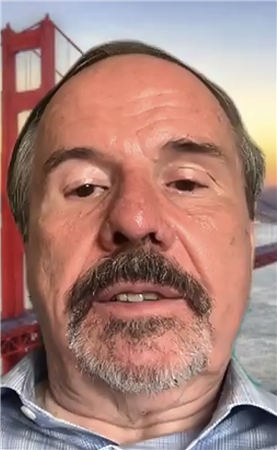
Gordon Crann is a member of R.C. of Hamilton After Five and Team Lead of the R.C. Botswana Satellite Club. Gord has an extensive resume of involvement in Rotary, nationally and internationally, especially with Rotary Action Groups in Microfinance, Community Development and Peace. He has given presentation at the R.I. conventions in Sydney Australia on how to do Global Grant Application for Microfinance projects. Today he spoke about Peace programmes supported the Rotary Foundation.
Rotary International’s involvement with peace began as early as 1914, when the R.C. of Hamilton proposed at the 1914 international convention in Texas that Rotary use its influence to advance peace and goodwill. This commitment was reaffirmed in 1921 at the R.I. convention in Edinburgh.
After WWII, The Rotary Foundation funded U.N. interns and created the Ambassadorial Scholars program. Did you know that five Rotarians have served as Secretary General of the United Nations? There are currently a variety of peace initiatives funded by The Rotary Foundation: Rotary Action Groups for Peace, Rotary Peace Builder Districts, the Institute for Economics and Peace and Rotary Centres for Peace and Conflict Resolution.
Gord then focused his talk on these centres for peace.
In 1999, there were few places in the world for peace studies. The Rotary Foundation decided to affect change by funding a total of 50 full scholarships for master’s degree students in Peace and Conflict Resolution studies. There are five universities involved: Duke/UNC (Chapel Hill), U.S.A.; the University of Bradford, Great Britain; Uppsala University, Sweden; the International Christian University, Japan; and Queensland University, Australia. Each programme is two years. Candidates must have at least five years of experience in peace related work.
There are also two Professional Development certificate programs: one at Chulalongkorn University, Bangkok Thailand and Makerere University, Kampala Uganda. This program is one year long: 11 weeks of studies and 9 months of implementing a social change initiative of the candidate’s choosing. The July issue of “Rotary” magazine featured the class at Makerere.
There are also two Professional Development certificate programs: one at Chulalongkorn University, Bangkok Thailand and Makerere University, Kampala Uganda. This program is one year long: 11 weeks of studies and 9 months of implementing a social change initiative of the candidate’s choosing. The July issue of “Rotary” magazine featured the class at Makerere.
Individuals apply for these scholarships with a Rotary club. The club, in turn, works with applicants to prepare them for the application and District interview. The District will then recommend which applicants go forward and so it goes up the Rotary chain until the final selection occurs. The total time from application to final selection is about 6 months. Based on my observations, the time required prior to the application is about 3 months. At the end of the final selection there can be no doubt that the scholarship winners are exceptional people.
The R.C. of Hamilton After Five’s Scholarship Committee ably chaired by Gord for the past 4 years has recruited, coached and mentored 11 successful applicants! Currently 2 of the 20 students at the Makerere P.D. programme were initially candidates sponsored by that club and then by D7090. Quite an achievement! Unlike the global grant application, the host club does not need to contribute funds to the programme. The club must only give of its talent and time in finding and supporting worthy candidates.